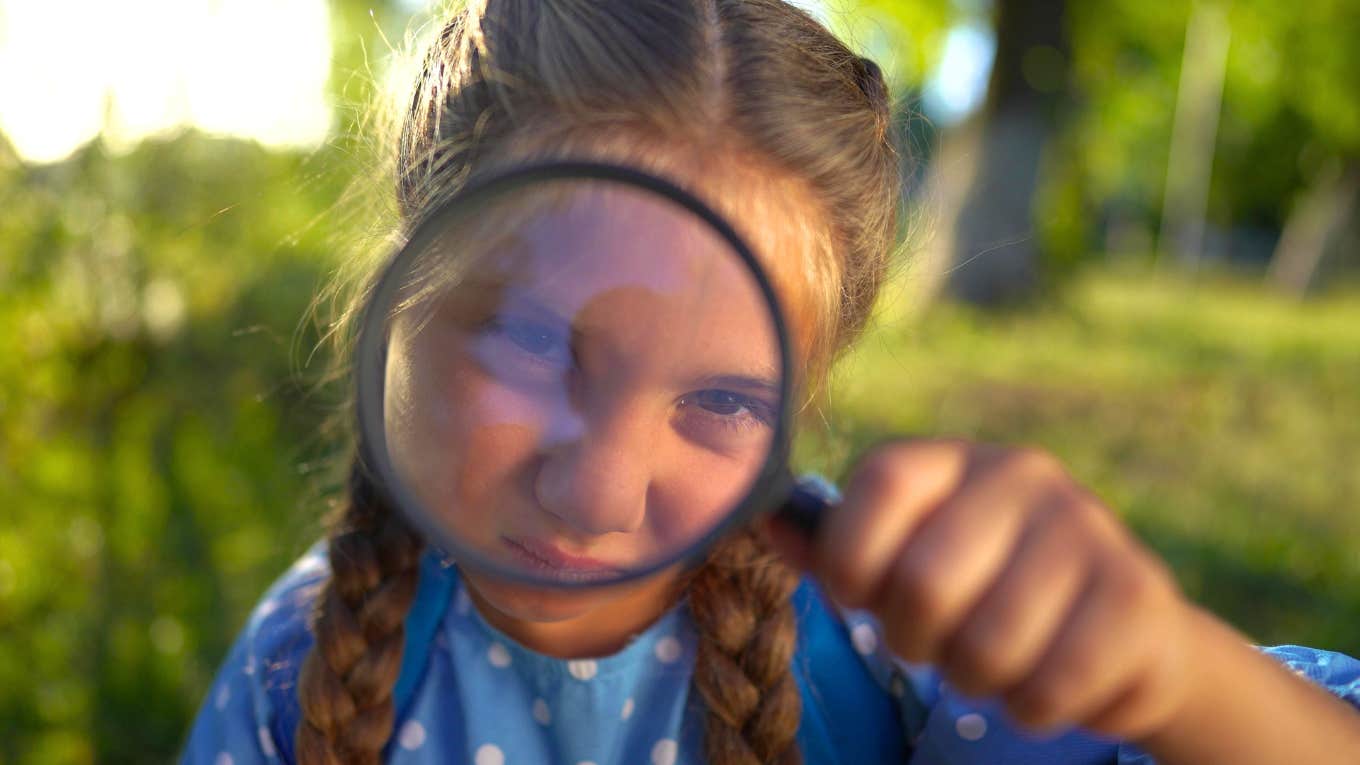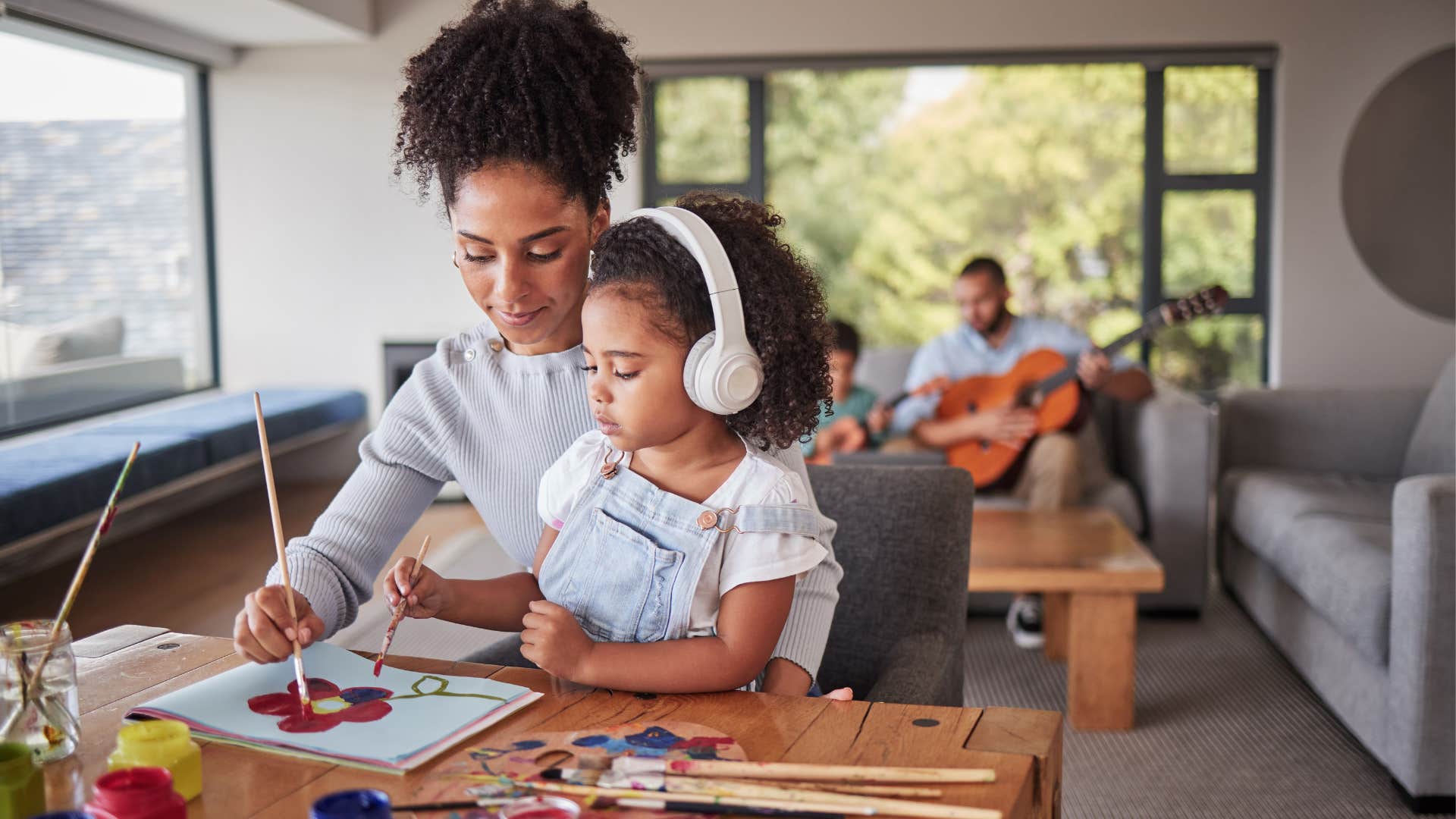11 Small Things Kids Don’t Notice About Their Parents Until They Become An Adult
Some of the most impactful things parents do go completely unnoticed by their children until they are all grown up.
 maxim ibragimov / Shutterstock
maxim ibragimov / Shutterstock Growing up, kids often take their parents' actions and sacrifices for granted, unaware of the deeper layers of love, responsibility, and care that go into parenting. It's only when they transition into adulthood that they begin to recognize the many small yet significant things their parents did that shaped their lives.
From the quiet support to the unspoken sacrifices, these unnoticed details reveal the true extent of parental devotion. As adults, children gain a newfound appreciation for the everyday gestures and enduring patience their parents exhibited while raising them, realizing how much was quietly woven into the fabric of their upbringing.
These are 11 small things kids don’t notice about their parents until they become an adult
1. How hard they work
 fizkes | Shutterstock
fizkes | Shutterstock
Kids might not fully grasp the effort their parents put into their jobs or responsibilities. Whether it's missing out on personal interests or working late hours, parents make many sacrifices to provide for their children. Kids tend to focus on fun activities and holidays, but they don't always see the daily grind parents endure like making meals, doing laundry, managing finances, keeping the house in order, and ensuring everyone gets to where they need to be.
“Parenting is the hardest job many of us will ever have, but it’s also the most meaningful,” says Liz Nissim Ph.D.
When your children grow up they realize how much energy and time it took for you, as their parents, to provide for the family. It's only when they take on similar responsibilities that they fully grasp everything their parents did for them.
2. The little sacrifices they make
 Prostock-studio | Shutterstock
Prostock-studio | Shutterstock
Parents often put their children's needs first, even at the cost of their own desires. They absorb their children's emotional ups and downs without complaint. They may hide their own stress or sadness to be the steady emotional support their kids need.
Many parents will forgo buying something they need or want just so they can provide for their kids. The new shoes or clothes they might need take a backseat to making sure their children have everything they need for school or extracurriculars.
Kids might not notice how their parents went without certain things for their happiness but they do when they themselves become parents. It's the accumulation of these small sacrifices that truly shows the depth of a parent's love. It's only when we step into adulthood that we realize how much they gave up and how hard they worked to make our lives easier.
3. How much they worry
 pics five | Shutterstock
pics five | Shutterstock
Parents tend to carry a lot of stress and worry, but they try to shield their kids from it. While parents try to shield their kids from financial concerns, many carry the burden of making ends meet. They worry about bills, savings, unexpected expenses, and making sure their kids have everything they need, sometimes at the cost of their own comfort. Parents also often worry about how their children are doing in social situations or how they're viewed by others.
“Facing challenges can be anxiety-provoking for children, but it can help them develop important life skills, such as grit and resilience,” says Danielle M. Dick, Ph.D.
These worries are usually kept hidden, as parents don’t want to burden their children with the weight of their concerns. It's only when we become adults that we realize the constant, quiet anxiety parents carry for our safety, happiness, and future.
4. The quiet support they show you
 PeopleImages.com - Yuri A | Shutterstock
PeopleImages.com - Yuri A | Shutterstock
Parents may offer emotional or financial support without making it a big deal. They support their children’s dreams and aspirations without ever needing to voice it. Whether it’s a smile when they see their child perform well in something they care about or a gentle push to keep trying, it’s the quiet belief in their abilities that makes a difference.
Parents show support by just being present, whether it’s attending every game, recital, or meeting, or simply sitting by their child's side through tough times. They don’t always make a big deal out of their presence, but they’re there when it counts.
Dona Matthews Ph.D states that showing up for your children is "important for your child’s development, from birth through into early adulthood." As kids grow older, they start to realize how much their parents have been there for them without asking for much in return. These gestures, though subtle, make a lasting impact on how we feel loved and cared for.
5. The unspoken communication between all of you
 PeopleImages.com - Yuri A | Shutterstock
PeopleImages.com - Yuri A | Shutterstock
Many parents have a way of communicating silently or through small gestures, like a certain look or a specific routine. Parents often know what their children need before the child even has to ask. Whether it’s bringing a glass of water when the child is feeling sick or putting together a comforting snack during a stressful time, this silent understanding and anticipation of needs goes unnoticed in childhood but becomes clear later in life.
Parents also communicate expectations without ever vocalizing them. Research shows that high expectations and educational anxiety in children motivate parents to become more involved in their children’s education, which in turn positively affects their children's growth.
As adults, kids start to notice and appreciate this kind of subtle connection. As we grow older and start to experience life from a different perspective, we begin to see how much our parents communicated through silence, body language, and simple gestures. These quiet moments often carried more meaning than any words ever could.
6. The impact of small traditions you now use
 Drazen Zigic | Shutterstock
Drazen Zigic | Shutterstock
As a child, you may have seen dinner time as just a routine, but as an adult, you realize the importance of family meals. These traditions of sitting down together at the table, sharing a meal, and having conversations, build connection and create a sense of belonging. You might now carry this on with your own family now understanding its value more deeply.
These small traditions, while seemingly insignificant at the time, often leave a lasting impact on how we view family, love, and our own personal values. As adults, we begin to understand that these rituals and habits created a sense of stability, comfort, and connection.
And, as we grow older, we might find ourselves repeating many of these traditions with our own families, passing on the values and memories they helped create.
7. Their sense of humor
 PeopleImages.com - Yuri A | Shuttstock
PeopleImages.com - Yuri A | Shuttstock
'Dad jokes' or 'mom puns' might have been met with eye rolls as kids, but as adults, we see them in a different light. “When part of one’s experience is beset by suffering, humor can restore perspective and be an emotional oasis,” says Carl E. Pickhardt Ph.D.
What seemed like cheesy or embarrassing jokes was actually their way of keeping things lighthearted and playful. You may even find yourself telling similar jokes, realizing that they became part of your own comedic style.
As children, we may not notice the subtle ways our parents use humor to shape our worldview, help us cope with challenges, or create strong connections. It’s only as we grow older that we realize how deeply their sense of humor influenced our own.
From making us laugh during tough times to teaching us to laugh at ourselves, parents' humor plays a crucial role in helping us navigate life with a lighter heart and a more resilient mindset.
8. How much they compromise
 imtmphoto | Shutterstock
imtmphoto | Shutterstock
Parents may ignore their own health in order to prioritize their children's well-being like sacrificing rest, exercise, or doctor’s visits in the process. Later, we realize how much stress and exhaustion they put up with, sometimes without ever voicing it.
The social sacrifices as well that parents make, from missing out on outings, parties, or hobbies they once enjoyed to the lack of time for their own friendships, become clearer when we experience the freedom of being child-free or living on our own.
As adults, we begin to appreciate how hard it must have been for them to let us make our own decisions while still offering guidance. Those little things that may not have been obvious when we were younger often shape who we are as adults and it’s only when we step into our own roles that we can truly grasp the magnitude of their sacrifices.
9. The cost of childhood
 Bohdan Malitskiy | Shuttstock
Bohdan Malitskiy | Shuttstock
The costs of childhood, both emotional and financial, are often hidden until adulthood provides the perspective to understand the depth of those sacrifices. Once kids step into their own adult roles, the true weight of what their parents gave up becomes much clearer. Parenting is emotionally taxing. From feeling responsible for your child’s future to navigating difficult moments, parents bear the emotional cost of nurturing and guiding their children.
Many parents stretch their finances to buy a home in a good school district, which becomes an investment not just in property, but in their children’s future. The mortgage payments, upkeep, and property taxes are all long-term financial commitments that are often made with the child’s future in mind.
Kids don't understand the financial strain that comes with raising them. As they grow up, they realize how much their parents sacrificed to ensure they had what they needed.
10. How much their own parents affected them
 bbernard | Shutterstock
bbernard | Shutterstock
Parents may consciously or unconsciously protect their children from tensions or conflicts they have with their own parents. As kids, we’re often shielded from the complexities of adult relationships, including the influence of grandparents. Our parents may also downplay the impact that their parents have on them, either to maintain a sense of stability or avoid burdening us with their own emotional struggles.
As children, our emotional and developmental focus is primarily on our immediate caregivers, usually our parents. Our relationship with them shapes our understanding of the world and ourselves. Since grandparents are often seen in a secondary role, their influence on our parents might not stand out.
We’re more likely to notice how our parents behave and interact with us, rather than tracing those behaviors back to the influence of the grandparents. The more we grow, the more we realize how deeply our grandparents affected our parents, often in ways we couldn't see when we were younger.
11. Their parents' true personalities
 Chay_Tee | Shutterstock
Chay_Tee | Shutterstock
Kids often see their parents as authority figures, but when they become adults, they start to see them as people with their own flaws, dreams, and personal histories, which makes the parent-child dynamic more complex and real. There are many aspects of our parents' true personalities that we don’t notice when we are kids.
Research shows that our parents’ innate characteristics and the way they engage with their children have lasting impacts on the development of their personality traits that are crucial for adolescent well-being and future success.
As we grow and experience life ourselves, we begin to understand them more deeply, not just as our caregivers, but as individuals with their own dreams, struggles, beliefs, and personalities. This deeper understanding can change the way we see our parents and can lead to a more complex, compassionate, and appreciative relationship with them as adults.
Sylvia Ojeda is an author who has over a decade of experience writing novels and screenplays. She covers self-help, relationships, culture, and human interest topics.

